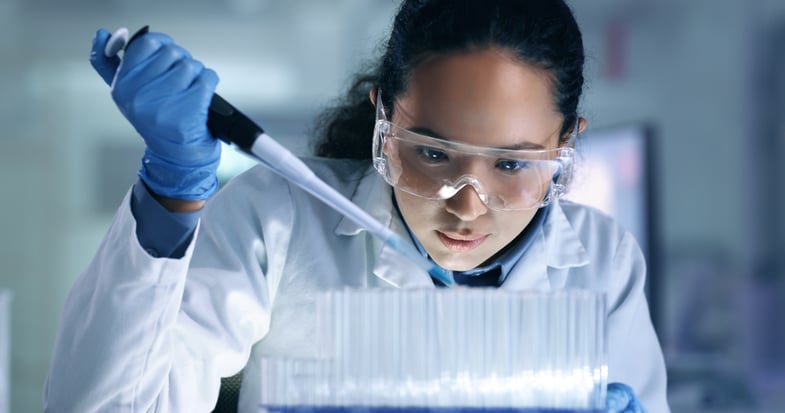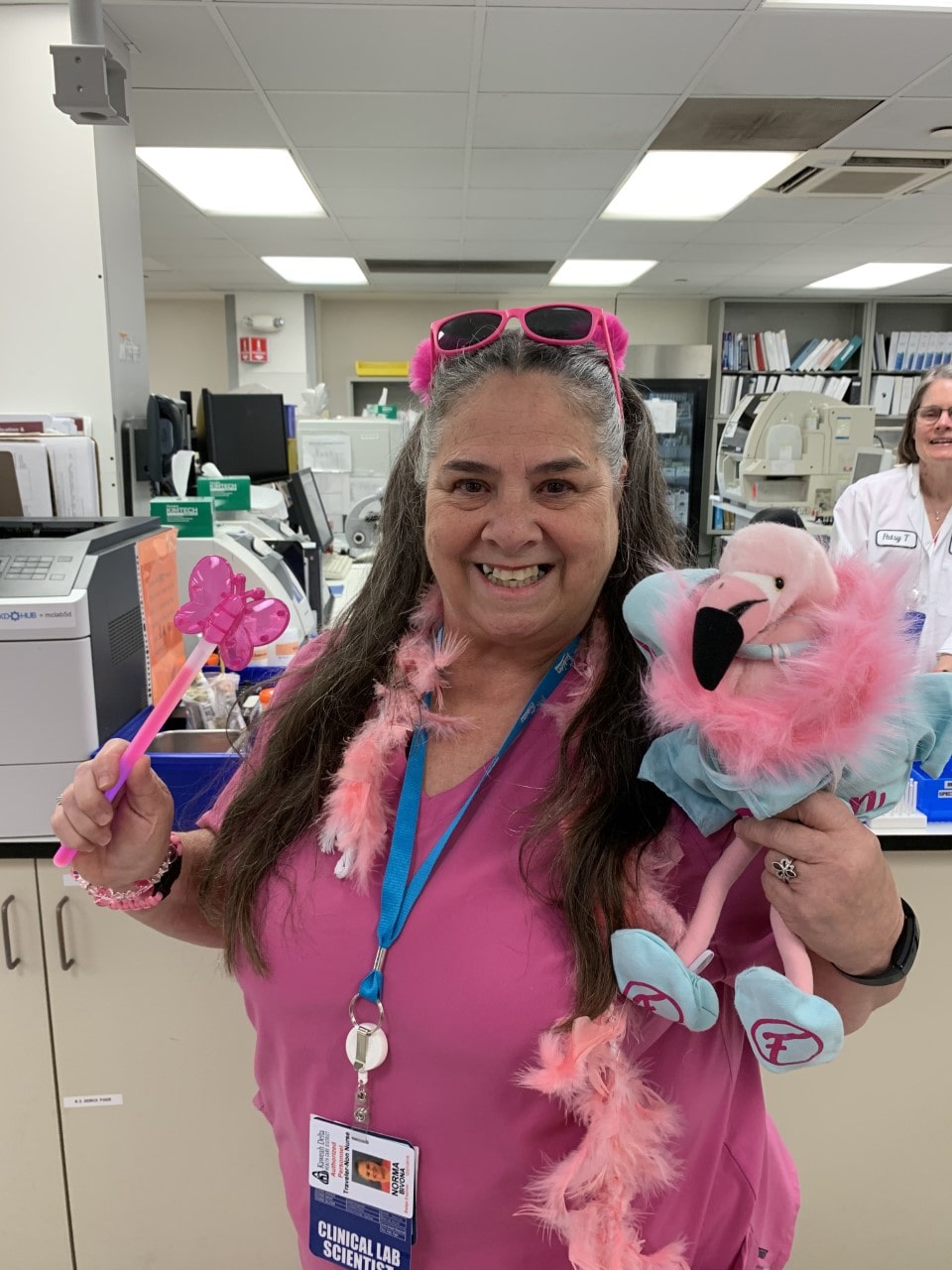 Medical laboratory professionals are at the forefront of clinical decision-making. Because lab results are so vital in providing data and information to doctors and patients, timeliness and accuracy are key factors in the success of medical lab techs. The need for medical laboratory professionals combined with high vacancy rates is causing clinical labs to reach crisis-level shortages. Let’s take a look at the demand for medical laboratory techs.
Medical laboratory professionals are at the forefront of clinical decision-making. Because lab results are so vital in providing data and information to doctors and patients, timeliness and accuracy are key factors in the success of medical lab techs. The need for medical laboratory professionals combined with high vacancy rates is causing clinical labs to reach crisis-level shortages. Let’s take a look at the demand for medical laboratory techs.
The Positive Demand for Medical Laboratory Techs
The shortage of clinical lab professionals
As more of the population ages and develops certain health ailments, more testing and healthcare results are needed to help diagnose and treat these patients. According to the Center for Disease Control and Prevention (CDC), 70% of today's medical decisions depend on laboratory test results. That means the demand for lab services is increasing.
Additionally, the U.S. Bureau of Labor Statistics (BLS) predicts the need for laboratory professionals to grow 7% between 2021 and 2031, which is faster than the average for all U.S. jobs. Within that time, the BLS projects more than 25,600 job openings to become available each year.
The medical tech shortage negatively affects clinical laboratory settings and patient care. However, due to the workforce shortage, the chances of getting a travel job as a medical laboratory professional are in your favor.
Like what you’re reading? You may also like: MLS vs MLT: What’s the Difference?
Q&A with Fusion Traveler, Norma Bivona, MLS

Norma is a medical lab scientist (MLS) and a long-time Fusion Medical Staffing traveler. With more than 15 years as a lab traveler, Norma knows how life-changing her work can be. To get an inside scoop into a lab professional’s life, we sat down with Norma for the juicy details.
Editor’s note: this interview originally took place in April 2022.
Megan Bebout: Hello Norma! It’s so great to work together. Diving right in, can you tell us how you got into the lab profession?
Norma Bivona: Hi, Megan! Yes, I was in the last semester of my toxicology degree, and I had to take a course called Clinical Chemistry and Toxicology. In this course, we studied therapeutic drug monitoring and the course had a lab. This is where I first became interested in working in the lab. To do so would mean becoming a medical laboratory scientist. Then, I completed my toxicology degree and began my Bachelor of Science in Medical Laboratory Science, and the rest is history.
MB: Wow! So, it all goes back to that one class. Now that you know your way around a lab, what’s lab life like?
NB: When you work in the lab, you’re working behind the scenes. We aren’t very visible, but the work we do is crucial for a physician’s ability to treat the patient. Without the test results that we run, the doctor would just be guessing how to treat a patient. If you want to work in the medical field and know that what you do matters, but don’t want to physically have contact with patients, this is the way to go.
MB: What’s something most people don’t know about working in the lab?
NB: There wouldn’t be a hospital without a lab. Practically any body fluid or tissue gets processed in a medical lab. Doctors rely on the lab’s analysis for diagnosis. Working in the lab means every day is a surprise. You never know what kind of specimens you may get. Plus, laboratory jobs are in demand!
MB: Lab life really has you living on the edge of your seat! Why did you decide to grow your career and start traveling?
NB: Right after graduating, I had been working at a hospital for six years and I wanted to get out of the box. I loved what I did but wanted to learn new things. I came across some information on traveling as a medical laboratory scientist, and I decided what a great way to learn more and travel at the same time! Traveling has given me the opportunity to work in different-sized hospitals and learn many different instrumentations. I like a challenge and thought this would be a great opportunity.
MB: And you were right! What destinations have you experienced as a travel lab professional? What places have been your favorite so far?
NB: I have been traveling for 15 years now. So far, I’ve worked in Iowa, three cities in Louisiana, Texas, Wisconsin, Utah, New York, and 11 different cities in California. I’ve enjoyed each one of my assignments in a different way. I really loved the countryside of Utah — it’s a beautiful state!
I’ve made many friends along the way that I still keep in touch with. Many have even taken me in as part of their family to spend the holidays with them since I was away from my family.
MB: That’s so nice! When it comes to traveling, how has Fusion impacted your travel lab career?
NB: I wouldn’t have been able to expand my career and meet some of the greatest people I have ever met if it weren’t for Fusion and my great recruiters. Fusion has given me the opportunity to be in charge of where I want to work. Knowing that Fusion has my back, I can decide on the perfect job to fit my lifestyle.
I actually followed my recruiter to Fusion. I figured she knew something I didn’t! So, it was off to Fusion for me. I soon found out that I fit in with Fusion’s humble, driven, and positive ideals and I wouldn’t have it any other way.
MB: OMG, we love that! Shoutout to your recruiter, that’s so cool! Why would you recommend Fusion to other travelers?
NB: As a medical laboratory professional, you have the education, confidence, and skills. Fusion will give you the opportunities to utilize these qualities while you adventure to the places of your choice. Fusion has great benefits and great recruiters with exceptional customer service. Better yet, they’re the best travel company family you can ask for!
MB: Norma, you’re making us blush. We feel so lucky to have you as part of our Fusion family! So, you’ve been doing this for a while. Is there an impactful story from your career that changed your life?
NB: It isn’t always just in the work aspect of your travel that you experience things that impact you. I have met some wonderful people on my travels, but one person has become extra special to me.
I met a young lady on my first travel assignment 15 years ago. I watched her graduate from high school and when I returned to the area for a second time to do a repeat assignment, I saw her graduate from college. We stayed in touch, and I returned for her wedding. She then soon after had her first child and I was asked to be her son’s godmother. If I hadn’t begun traveling, I would have never had the chance to be a godmother to the sweetest little boy. I treasure this the most of all my travel years!
MB: It was meant to be! Okay, lastly, what advice would you share with new med travelers?
NB: To travelers, I would say to stay positive. Remember that teamwork makes the dream work. Also, remember you’re there to help and fill in where needed, so being flexible helps. Remember you’re a guest in the facility so as the old saying goes, “When in Rome, do as the Romans do.” Don’t try to change the way things are done, and most importantly, remember the patient comes first and is the most important.
It’s an exciting time to start a career as a traveling laboratory professional. While the need for patient testing continues to change over time, the need for skilled travelers in the lab remains a priority to healthcare and those who staff it.





